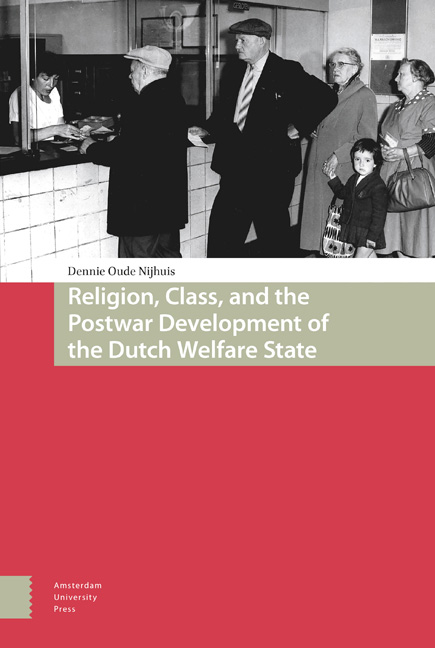
- Publisher:
- Amsterdam University Press
- Online publication date:
- December 2020
- Print publication year:
- 2018
- Online ISBN:
- 9789048537648
Last updated 27/06/24: Online ordering is currently unavailable due to technical issues. We apologise for any delays responding to customers while we resolve this. For further updates please visit our website: https://www.cambridge.org/news-and-insights/technical-incident


This book examines how the Netherlands managed to create and maintain one of the world's most generous and inclusive welfare systems despite having been dominated by Christian-democratic or conservative, rather than socialist dominated governments, for most of the post-war period. It emphasizes that such systems have strong consequences for the distribution of income and risk among different segments of society and argues that they could consequently only emerge in countries where middle class groups were unable to utilize their key electoral and strong labor market position to mobilize against the adverse consequences of redistribution for them. By illustrating their key role in the coming about of solidaristic welfare reform in the Netherlands, the book also offers a novel view of the roles of Christian-democracy and the labor union movement in the development of modern welfare states. By highlighting how welfare reform contributed to the employment miracle of the 1990s, the book sheds new light on how countries are able to combine high levels of welfare generosity and solidarity with successful macro-economic performance.
 Loading metrics...
Loading metrics...
* Views captured on Cambridge Core between #date#. This data will be updated every 24 hours.
Usage data cannot currently be displayed.